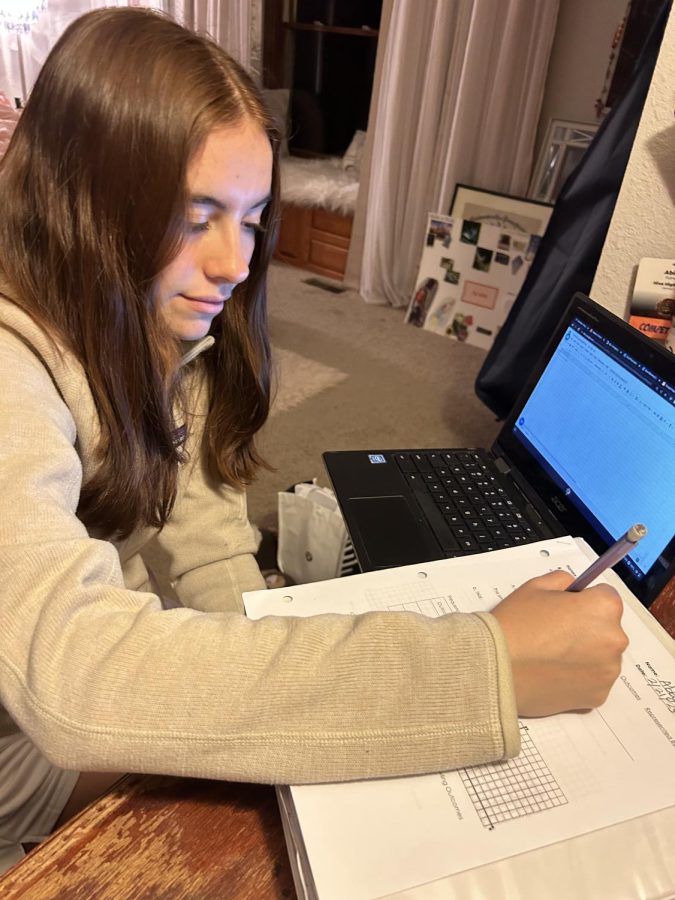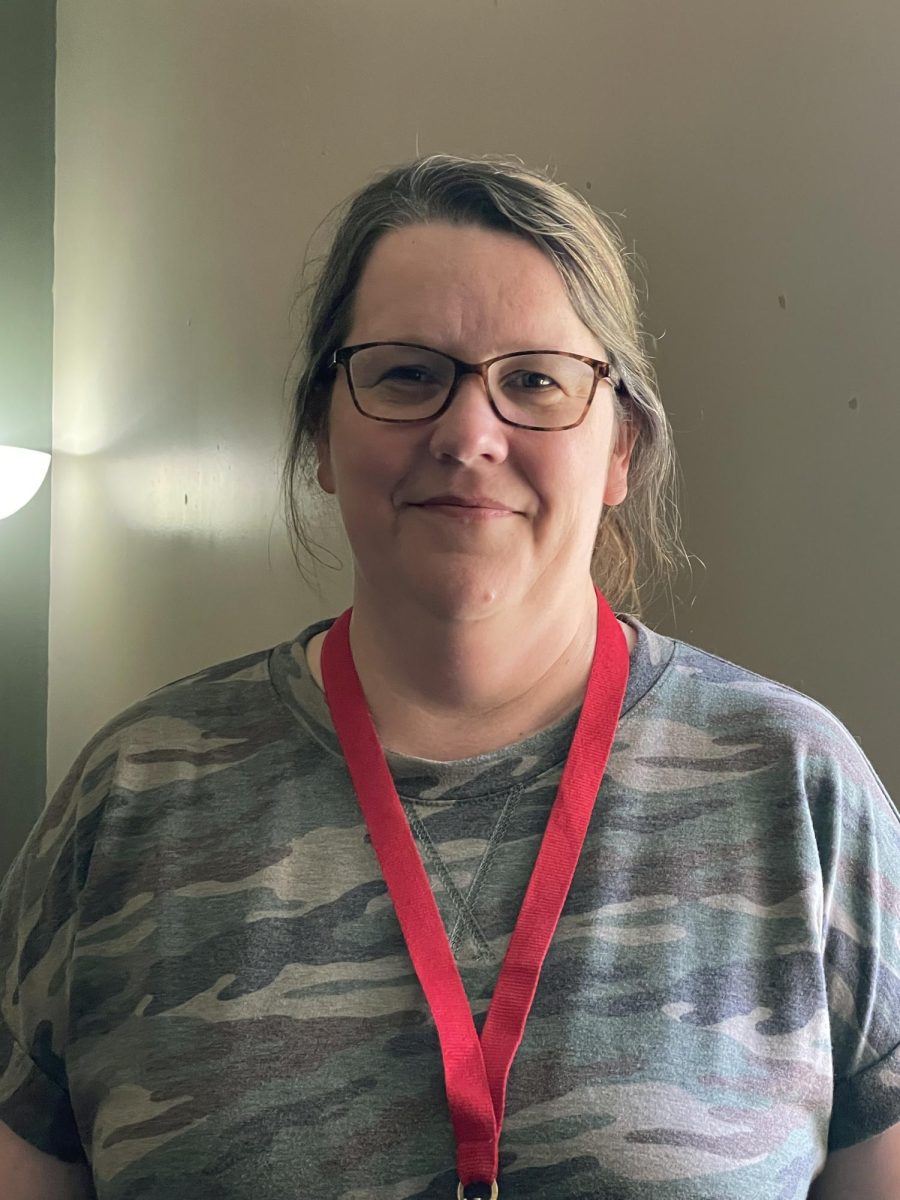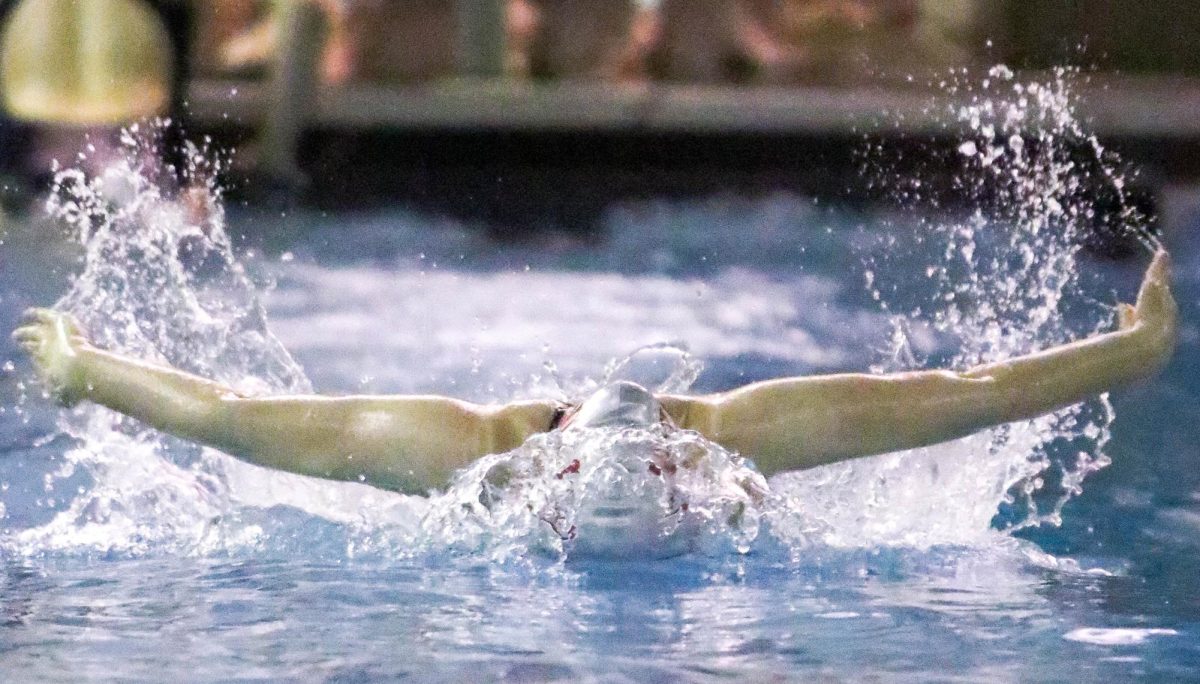Researchers in the Making
Advanced Placement Research students at Nixa conduct extensive studies
May 2, 2023
High school learning usually takes place at a desk. However, Advanced Placement (AP) Research students at Nixa are getting up from their seats and embarking on college-level research. AP Research is a required course if a student is seeking the AP Capstone Diploma. Junior Abigail Fulnecky is aiming for the AP Capstone Diploma and said that AP Research is a great opportunity to experience college-level work before leaving the high school doors.
“… [AP Research] really improved my writing skills, as well as my public speaking and collaboration,” Fulnecky said. “You are really mirroring college-level work as a sophomore or junior. … It’s really cool because you have opportunities that normally you wouldn’t get to pursue in high school.”
As a part of the AP Research coursework, each student is required to conduct their own original year-long research study. They pick a topic, formulate a research question and organize an experiment during the process.
AP Research teacher Amanda Stoll says the project requires creative thinking and dedication.
“AP Research forces students to think outside of the box,” Stoll said. “They have to conduct their own research on a topic of their choice, so it is a very self-driven class. Students have to learn time management and perseverance.”
Fulnecky plays varsity tennis, which inspired her research project idea.
“As a member of the tennis team, I’m really interested in the psychology behind tennis,” Fulnecky said. “So with my project, I wanted to look into self-perception and opponent perception within tennis. With my project, I got to create my own tennis tournament where I measured how changing the perceptions that players had of their opponents affected the match score and their mentality in the match. Essentially, I was seeing if players that were evenly skilled could win or lose based off of how they perceived the person they were playing.”
Although the project is completed individually, Fulnecky said there is a collaborative element to the process.
“We do a lot of editing with each other, brainstorming [and] we work through any difficulties we might have,” Fulnecky said. “You’re constantly getting feedback from your peers, … and throughout the year we make our own poster presentations that we give to the class [to] update [them] about where you are in your research.”
Stoll enjoys watching her students conduct their studies.
“It’s … a lot of fun to see the projects the students come up with and see them accomplish their own work throughout the year,” Stoll said. “I love the end of the class when they present their findings. I’m so proud of seeing their success with the end results, and I hope they are proud of themselves as well.”
As students are learning how to conduct research, they are also experiencing personal growth.
“I think students learn a lot about themselves during the research process,” Stoll said. “They learn what they are capable of work-wise and their own limits.”
Once the student’s research project is completed, they have the opportunity to have their findings published by the College Board. The College Board is the organization that oversees AP classes and testing, as well as the SAT. The unique opportunity to have a student’s research officially published sets it apart from other high school research assignments.
“We work all year long on our project,” Fulnecky said. “We create around a five thousand word paper, it’s peer-reviewed and with that we have an expert adviser that’s looking over our project, and we do extensive research on our topic before creating the research project. Our end goal is to be published by the College Board…”
Although the research findings of the projects are not conclusive, Fulnecky said the experience is invaluable.
“As we are only high school students, there are limitations to [our research],” Fulnecky said. “We obviously don’t have as much funding as a college student would and there are limitations with sample size. … The goal of AP Research is to teach students how to think like a researcher, how to go about the process, and to create your own original research. However, with that comes flaws and the inability to make it conclusive.”
Although the process is extensive, Fulnecky said it is worth the effort and is an enjoyable experience overall.
“It was definitely enjoyable because, unlike other classes in high school, I had full control over the whole process,” Fulnecky said. “I got to study one of the things I like most, which is tennis, [and] it was really cool because I got to create my own tennis tournament. … It’s cool getting to see it from the ground up and that I was able to create all this research and create this really neat project starting from nothing.”






